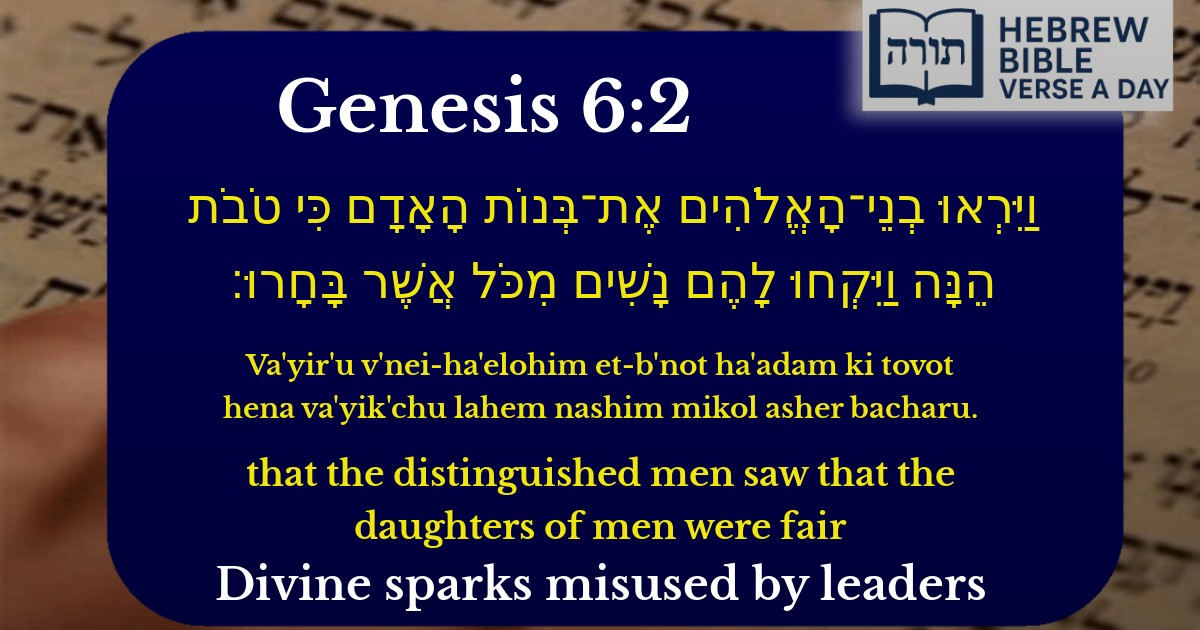Frequently Asked Questions
Q: Who are the 'benei Elohim' (sons of God) mentioned in Genesis 6:2?
A: According to Rashi and many traditional Jewish sources, the 'benei Elohim' in this verse refers to powerful or noble men—leaders and judges of that generation. The Ramban explains they were called this because they acted with arrogance, as if they were like gods in their own eyes. The Talmud (Yoma 67b) also associates them with the corrupt leadership before the Flood.
Q: Why does the Torah mention that the daughters of men were 'fair'?
A: The Torah emphasizes their beauty to show that these powerful men acted based on physical desire rather than moral judgment. Rashi explains that they took women 'from all they chose'—meaning even married women, showing their complete disregard for morality. This was part of the corruption that led to the Flood.
Q: What lesson can we learn from Genesis 6:2 about relationships?
A: This verse teaches the danger of pursuing relationships based solely on physical attraction without moral boundaries. The Midrash (Bereishit Rabbah 26:5) criticizes their behavior as selfish and destructive. Jewish tradition emphasizes marriage built on holiness (kedusha) and proper values, not just outward appearances.
Q: How does this verse connect to the story of the Flood?
A: This behavior was part of the widespread corruption that led Hashem to bring the Flood. The Sages explain (Sanhedrin 108a) that their sins included theft and coercion in taking women, showing the breakdown of society. The verse sets the stage for why the world needed purification through the Flood.
Q: Does 'benei Elohim' mean angels in Jewish tradition?
A: While some non-Jewish interpretations suggest angels, mainstream Orthodox Jewish commentators like Rashi, Ramban, and Ibn Ezra strongly reject this view. The Talmud (Yoma 67b) and Midrashim consistently explain these as human leaders who abused power. Judaism maintains a clear separation between humans and angels in biblical interpretation.


Understanding "Bnei HaElohim" and "Bnot HaAdam"
The phrase "בְנֵי־הָאֱלֹהִים" (Bnei HaElohim) is interpreted in several ways by traditional commentators:
The Sin of Taking Women "From All They Chose"
The phrase "וַיִּקְחוּ לָהֶם נָשִׁים מִכֹּל אֲשֶׁר בָּחָרוּ" is condemned by the Sages:
Moral Decline Before the Flood
This episode marks the moral deterioration leading to the Flood (Mabul):
Lessons for Ethical Conduct
The verse warns against: